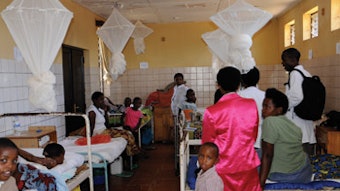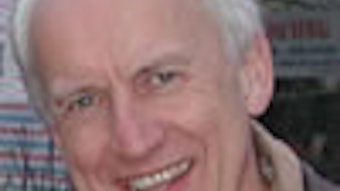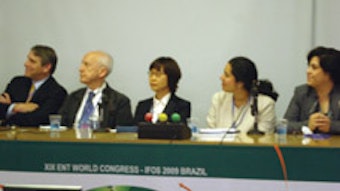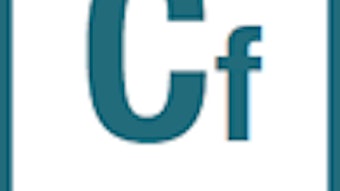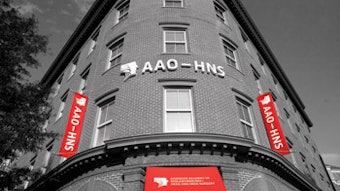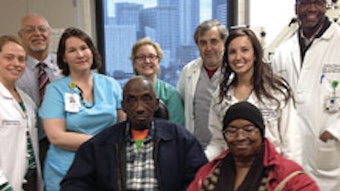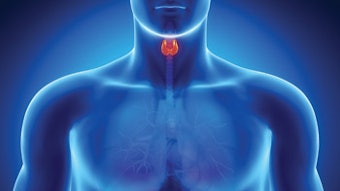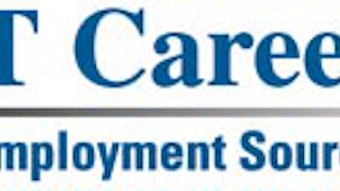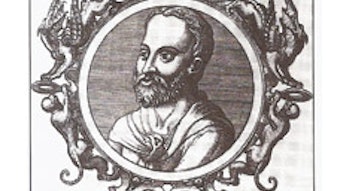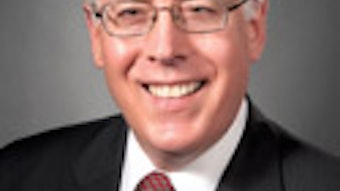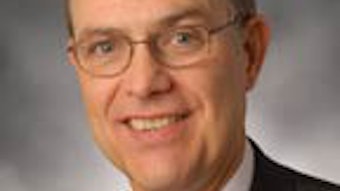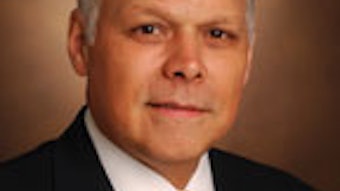Official Statements of Leadership Candidates
The Academy will conduct its 2013 annual leadership selection with online balloting, in an effort to streamline the voting process and increase participation. The official candidate statements are published below. Early next month, you will receive an email instructing you on the voting process. To ensure you can participate, you must be a member in good standing, and the Academy must have an active email address for you. To update your profile, log in at http://www.entnet.org/Community/memberProfile.cfm. Candidates for President-elect (vote for one) Marvin P. Fried, MD Identify two strengths and vulnerabilities of our Academy and explain how you would propose to leverage those strengths and overcome those vulnerabilities to ensure future stability and success of the organization. As your next Academy president, I would vigorously protect what I view as our AAO-HNS/Foundation’s greatest strength: its power of unification. Inside the Academy’s “house” we are all otolaryngologists first, and despite our diversity, we live under the same roof with common goals and issues. The Academy has the resources to make a difference by speaking for otorhinolaryngology-head and neck surgery to government and the public on socioeconomic issues and policies that affect us all. The rapidly changing healthcare landscape necessitates that our Academy continue collaborating with other medical organizations, defining quality healthcare in unison, and projecting our voice as one. Our Academy’s annual meeting, the world’s largest otolaryngology educational venue, represents a second strength I would fortify. Let us bring together private practitioners, academicians, specialists, generalists, scientists, clinicians, Americans, and international guests to create a powerful and effective learning environment. I want to utilize technology so that all of us will efficiently acquire and share this knowledge which is most pertinent to our professional daily lives and practices. This can only enhance patient care and the high esteem for otolaryngology. Vulnerabilities become reality if the future eludes our current conscience. We cannot afford to lead from behind or react instead of being proactive. If elected, I would engage our subspecialty to find commonalities. Such communication would yield many rewards, including allowing our Academy to provide the best possible representation in meeting the challenges of the Affordable Care Act. I also aim to lead in obtaining tort reform, allocating care to the newly insured, providing stratified care for our aging population, and developing cost-effective approaches. To do less is to leave us vulnerable to the politics of those outside of our profession. In the context of the Academy’s Strategic Plan, what changes do you envision will be necessary in our Academy during the next three to five years in order to meet the educational, research, advocacy, and fiscal challenges presented by evolving healthcare policy and legislation? I hope to engage our grassroots as never before, energizing and involving patients, our biggest advocates, in ensuring a future of quality care so that the best and brightest physicians continue our heritage. All of the aforementioned must be considered if we are to fulfill our destiny. Educational advancement involves innovation in the way physicians learn through new materials that respond to the individual physician’s needs using the most advanced technologies as well as collaboration with other societies. Learning takes place yearlong, not simply once a year. The Academy should nurture and enrich the CORE process by working with subspecialty societies to support research on all levels. I would also advocate for continued strong governmental NIH support, particularly of the NIDCD. I personally feel that a focus on patient safety (simulation training, for example) is an area in which otolaryngology takes a leadership role. I am confident that my background of working with our subspecialty societies, innovating in teaching approaches, profitably managing the finances of a large academic department, overcoming traditional town-gown barriers, fostering collegiality, and enhancing the careers of those who have come within my purview, have given me the tools to lead our Academy during these challenging times. I am honored to be considered for this role and will work tirelessly to make a difference. Candidates for President-elect (vote for one) Gayle E. Woodson, MD Identify two strengths and vulnerabilities of our Academy and explain how you would propose to leverage those strengths and overcome those vulnerabilities to ensure future stability and success of the organization. The greatest strength of the American Academy of Otolaryngology—Head and Neck Surgery is its pre-eminence in otolaryngology education, with the world’s best otolaryngology meeting, and its diverse continuing medical education offerings. Another important strength is that its membership includes a high percentage of the practicing otolaryngologists in this country. This confers authenticity when the organization speaks for the specialty. Our educational programs are challenged by exponential increases in knowledge and the ability for anyone to have access to information from any point in the world through a wide variety of media. Increasingly, our patients may learn of some important advance before we, as physicians, have had time to read about it in our journals. We are bombarded with information from email alerts from various sources and can easily find quick answers to many questions through search engines. As other sources of information become timelier and more accessible to our members, our products then become less valuable. And although we continue to have the best otolaryngology meeting in the world, we may have fewer attendees as financial pressures reduce the time available for educational activity. Many medical organizations are losing members as physicians face greater fiscal challenges and dues increase. Currently, most practicing otolaryngologists do choose to maintain membership in our Academy. But we must never take this for granted. The rapid changes in our healthcare system are confusing and threatening. Our Academy is poised to offer vital assistance to physicians during these uncertain times. We must be effective in collective action, such as determining the quality measures that will be used to assess our practice. In the context of the Academy’s Strategic Plan, what changes do you envision will be necessary in our Academy during the next three to five years in order to meet the educational, research, advocacy, and fiscal challenges presented by evolving healthcare policy and legislation? The future of the American Academy of Otolaryngology—Head and Neck Surgery is critically dependent on maintaining relevance to its members. To do so, we must adapt to the changing demographics of its membership and the explosion in the technology of information transfer. We must become more accessible and rapidly responsive to our members. Questionnaires are not very effective in identifying issues. Additionally, most members are not aware of the helpful resources currently available on our website, despite notifications via newsletters and email. The website should be more interactive and personalized. Members could pose questions and express concerns more spontaneously and get information “just in time.” Social media should be explored as a means to drive traffic to the website and highlight available resources. A thorough evaluation of our teaching and learning methods is warranted to ensure that our educational products are compatible with changing modes of communication. A broader issue is the extent to which our educational products incorporate accepted principles of adult education. Licensing boards and hospital credential committees will increasingly require specific CME or even Maintenance of Certification, and so it will be important to assure that we offer content relevant to those requirements. Finally, the output of our committees and task forces is vital to achieving the goals of our Academy. Increasingly, we will need to rely on teleconferencing to deal with time-sensitive issues in a cost-effective manner. Candidates for Director At-Large (Academic) (vote for one) In your view, what are the three most important elements of the Academy’s current Strategic Plan and how would you propose advancing them? Michael D. Seidman, MD It would be an immense honor to be your next Director at Large and to serve you and the AAO-HNS. As your Director at Large, I would focus on advocacy, unity, and quality. I will be vigilant in efforts to grow our practices, enhance research and quality, strengthen advocacy efforts, and ensure a united voice to best serve our members. These activities are necessary to advance issues germane to our patients and practices. I have participated in diverse roles in the Academy for more than 20 years; the AAO-HNS is part of my core and identity. As past chair of the BOG, I worked tirelessly to: Aggressively advocate for what is right for our patients and practices. Ensure fair reimbursement. See that our practices are not chiseled away by our allied health colleagues. Lobby ferociously for fair practices in medical liability. Build bridges and forge healthy relationships among our subspecialists. As a Director at Large, I will continue these efforts. The wonderful opportunities afforded to me by working nationally for our profession are energizing. There is no better way to “give back” to the profession I love than by engaging in activities that strengthen our mission and advance our strategic vision. David E. Tunkel, MD The key element of the AAO-HNS strategic plan is development of evidence that guides our medical and surgical decision-making. Disease-specific outcome measures, with data collected from literature and input of membership, provide support for our diagnostic and therapeutic endeavors, many of which are pressured by third parties. The AAO-HNS can provide resources to develop practice guidelines and measure our outcomes in major medical centers and at the grassroots. Next, the AAO-HNS provides a multifaceted approach to educate physicians and patients—through a vibrant national meeting, the Academy Bulletin and journal, and a host of timely educational products. Third, the AAO-HNS advocates for otolaryngologists and perhaps more importantly for our patients in this evolving medical climate. Advocacy is easy when we have clear evidence of improved patient outcomes and quality of life. Members can propose topics for practice guidelines, and should provide comment and review during the development of such documents. Of course, members should continue to explore educational opportunities at home and at meetings. Simply said, the AAO-HNS should continue to support research that defines quality and optimizes patient care, spread this word through traditional and 21st century educational approaches, and represent the interests of members and our patients. Business Meeting Notification The AAO-HNS Business Meeting is preliminarily scheduled on September 28, from 11:00 am–11:30 am and will be at the Vancouver Convention Centre, Room 1. It is open to all members. Please join us. Candidates for Director At-Large (Private Practice) (vote for one) In your view, what are the three most important elements of the Academy’s current Strategic Plan and how would you propose advancing them? Rick A. Friedman, MD, PhD The three most important elements of the Academy’s Strategic Plan are advocacy, research and quality, and education and knowledge. I would be committed to educating patients and legislators/policy makers about the complexities and associated skill sets required for each of us to provide quality care for our patients with diseases of the head and neck, among the most common afflictions in our country. This two-tiered educational process will lead to greater support and awareness from our patients and policy makers facilitating fair policies and reimbursement from both governmental and private payers. The latter two elements, research and quality, and education and knowledge, go hand-in-hand. As a basic and clinical scientist in our field, I believe that we, as a specialty, can and do distinguish ourselves in our research efforts. I would continue to advocate for the AAO-HNS/F, its affiliates, and the NIH to support clinical outcomes research and basic science advancements, which ultimately lead to the highest level of patient care and innovative medicine. Lastly, with the rapid advances occurring in our field, I will advocate for enhanced, standardized, and up-to-date educational activities for our practicing members and our residents, fellows, and medical students in training. Karen T. Pitman, MD The strategic plan is a dynamic document, revised annually by our elected leaders to ensure the Academy’s focus, work plan, and efforts are timely and relevant. Three important elements of this plan are education and knowledge, research and quality, and unity. These elements inform much of what is important to members and contribute to the toolbox the Academy aims to provide to members so they can effectively deal with changes currently happening in the way we practice and are reimbursed for the quality patient care for which we are committed. Other critical aspects of the strategic plan are providing the resources to support every member’s ability to meet the requirements of certification and licensure, and to continue to develop evidence-based patient care guidelines. Education is the thread that connects every part of the strategic plan and to that end making members aware of all the Academy has to offer on the educational front is an important goal. Whether for maintenance of certification, continuing education credit, resources for training residents or much, much more, the Academy will continue to invest significant resources and enlist member volunteers to provide top-notch educational materials on a variety of platforms that serve our members’ varied learning styles. AAO-HNS 2013 Annual Election – Electronic Ballot All eligible voting members of the Academy for whom we have an active email address, will receive a personal email in advance of the ballot’s “go live” date. This email will contain your confidential password to access the electronic ballot. For those eligible members for whom we do not have an email address on record, you will receive a letter in the mail with your personal confidential password. Members who wish to receive a paper ballot must submit a request in writing to executiveservices@entnet.org or call the Academy at 1-703-836-4444 and request to speak to someone in Executive Operations. The AAO-HNS election ballot goes “live” on July 8, 2013 and closes on August 22, 2013. Candidates for Audit Committee (vote for one) What is your particular experience or interest that would make you an effective member of the Audit Committee of the Academy? Richard R. Orlandi, MD My motivation for this role is simple: ensuring the ethical and efficient use of our valuable Academy members’ dues and other contributions. Our Academy provides exceptional value for its members, but these services come at a significant price. Our members should expect that their dues and donations are spent with maximal effectiveness. I have benefited from many responsibilities that have yielded financial experience. Most recently I have been appointed medical director for a 200,000 square-foot multispecialty clinic with an annual budget of more than $25 million. I am well versed in poring over detailed financial reports in order to make sure that every dollar is being spent effectively and in accordance with established policies. I have had the honor of working with many altruistic and ethical leaders. Nonetheless, there was a common saying in my residency: “Don’t trust your mother.” Independent financial oversight is crucial to ensure that disbursements are consistent with the high ethical standards that our Academy members deserve. Based on my motivations and experiences, I am confident that I am well qualified for this role. I appreciate the honor of this nomination and, if elected, pledge to the members my best efforts in carrying out this responsibility. Jerome W. (Jerry) Thompson, MD, MBA I would be honored to serve on the AAO-HNS Audit Committee. I received an MBA with emphasis in Finance from UCLA. I’ve held several positions to prepare for financial leadership responsibilities, including as treasurer of the county medical society for four years and past president. Also, I have previously served on the AAO-HNS Audit and RVU committees. In addition, I have held numerous positions with the American Society of Pediatric Otolaryngology (ASPO): Finance Committee, COIN Representative, Audit Committee (Chair), Local Arrangements Committee, CME Committee (Chair), Secretary and Past President. Currently, I serve on the Grant Review Committee of the Juvenile Diabetes Research Foundation (JDRF). This is a national non-profit organization in which I assist in awarding $50 million in grants every year for research. The Governor appointed me to serve on the State of Tennessee Board of Communication Disorders and Sciences Committee (2008-2010). I am currently Chairman, Department of Otolaryngology, U.T. Health Science Center and former Associate Dean, Graduate Medical Education, U.T. Health Science Center (1997-2000) responsible for a budget of $60 million and supervised 900 residents campus-wide. If elected, I will work closely with the committee to be responsive to the members and help safeguard the Academy. Candidates for Nominating Committee (Academic) (vote for two) What do you see as the priorities of the Nominating Committee in selecting the future leaders of our Academy? Ellen S. Deutsch, MD AAO-HNS members will face many challenges in the years ahead, but we have the benefit of a community with wisdom, talent, and enthusiasm. Throughout the years, I have had the privilege of working alongside a wide variety of dedicated, skilled members of the AAO-HNS community, as we have continually improved the quality of our patient care, our educational practices, and our research. The Nominating Committee is responsible for looking within our community to identify candidates who are the “best of the best;” those who are visionary, passionate, collaborative, and committed to representing the varied interests of Academy members. I have served on a variety of AAO-HNS committees and I’ve served in leadership roles in several national and international professional societies; these experiences have helped me understand leadership qualities. Our leaders will need to understand how to make the best use of rapidly evolving technologies, and the socioeconomic context in which we function, in order to enable otolaryngologists to provide the best care for our patients. I would be honored to have the opportunity to dedicate my longstanding interest and experience toward the evaluation, recommendation, and nomination of the future leaders of the AAO-HNS. Christine B. Franzese, MD The Nominating Committee’s priority is to select visionary, forward-thinking, and engaging leadership candidates that comprise a slate of officers that accurately reflects the diversity of the entire organization while maintaining balance among subspecialties, practice types, age, and gender. Maintaining balance is essential to success, and as a former program director and former president of the SUO-Otolaryngology Program Directors Organization, I understand how critical this is. The success of the program is represented by the success of its graduates and the fundamental knowledge that graduates employ represents the strength of the program, the balance of exposure among the different subspecialties, and the acquisition of the nuanced tools of the business of medicine while thriving in academia. This same balance needs to be maintained when selecting qualified leadership candidates for such a large and varied organization. Having been involved in leadership roles in single subspecialty and multispecialty organizations, I feel these experiences and insights have given me a balance that will serve our organization well in harnessing our diverse strengths and ensuring our leadership accurately reflects our membership. Serving on the Nominating Committee would be an honor and a privilege, one I hope the membership finds me worthy of. Stacey Ishman, MD, MPH Like many of you, the Academy has always served as my professional home. I appreciate the efforts put forth to improve practice (and reimbursement), to broaden research, and to focus us on quality. The ultimate job of the Academy leadership is to assure that we can provide patients with safe, evidence-based care. Toward that end, I think the Nominating Committee must select leaders who are focused on the education of our members while understanding the social and economic issues that we are facing as academic and private practitioners alike. We need leaders who have committed their time to furthering these goals as educational presenters, as researchers, as legislative advocates, or as Academy committee members. An ideal candidate must also have the vision to continue to position the Academy at the forefront of the quality and patient outcome efforts while being aware of the need for the diverse perspectives that are necessary to represent our broad constituency. In summary, I believe we must select physician volunteers who have a commitment to service, an understanding of the issues affecting medicine, and the integrity and passion to carry out this important work. Brian Nussenbaum, MD The role of the AAO-HNS Nominating Committee is “to provide the voting membership of the AAO-HNS with a slate of candidates that have been determined to be the ‘best of the best’ to carry on the leadership of the Academy.” I see this responsibility as critically important, especially in these rapidly changing times for medicine. I believe that successful leadership of our organization is not about individual leaders, but rather the leadership team that represents the collective interests and concerns of all otolaryngologist-head and neck surgeons from diverse backgrounds. The strength of the leadership team is based on the collective intelligence and fortitude of its members, and the commitment to the organization’s core values. The ideal Academy members who compose the leadership team will include those who come from diverse backgrounds, have demonstrated dedication to our specialty, and have a clear vision for the continued success of otolaryngology. These individuals are humble, thoughtful, flexible, trustworthy, confident, altruistic, and inspiring. If elected, I will ensure that the Academy membership is provided with a slate of candidates that would all be outstanding leaders to build the team with and represent otolaryngology-head and neck surgery with honor and integrity. Candidates for Nominating Committee (Private Practice) (vote for two) What do you see as the priorities of the Nominating Committee in selecting the future leaders of our Academy? Ajay E. Chitkara, MD Though otolaryngologists represent a relatively small proportion of physicians in this country, our membership is extremely diverse. This variability in our membership demands the combination of experience, adaptability, and vision in our leadership corps. Future leaders of our Academy must have diverse and practical experiences, which provide a basis for future direction. Experience in clinical practice (academic or private), fosters an understanding of the challenges we confront on a daily basis. Experience in local, regional, and national organizations provides the foundation crucial for our leadership. Adaptability is an important characteristic for those at the helm of our Academy. The practicing otolaryngologist in 2013 is confronted with a plethora of regulatory, compliance, and technological changes—current and future. This evolving nature requires our Academy, and its leadership, to progress forward with the continuously changing playing field. In the context of the changing healthcare landscape, it is imperative that leaders of our Academy provide an astute vision by which to navigate our specialty. Building upon experience and adaptability, clarity of vision will provide the best opportunities for our membership and our patients as we forge through this rapidly evolving era in medicine. Lisa Perry-Gilkes, MD “Without vision the people perish.” The honor of being nominated is not taken lightly. The members of the Nominating Committee have the responsibility of selecting the physicians who will form the future and the vision of our Academy. One of the priorities of this committee is to select candidates with insight to prepare us for the evolution of the practice of medicine. These changes are on all fronts. Physicians face challenges in all modes of practice. Our specialty is rapidly advancing in innovations in patient care. We will also conform to the changes required by the Affordable Care Act. We are an Academy of heterogeneous members from general otolaryngologist to subspecialist, members still in training to seasoned professionals. An ever increasingly diverse group, we join together in one voice. Another imperative/priority of this committee is to select candidates that reflect our members. I enjoy the opportunity to serve the Academy by being a member of the Board of Governors and Chair of the Diversity Committee, which allows me access to the Board of Directors. Through this involvement I continue to make the acquaintance of our dedicated leaders. I will seek comparable candidates to serve. Thank you for your support. Shannon P. Pryor, MD Nominating Committee members must be active in efforts to identify and encourage those individuals with the ability, dedication, and responsiveness to become effective and inspiring leaders of our Academy. We should be following emerging leaders at all levels within our organization to encourage leadership development from the bottom up. We must include both the younger generations who will eventually be most affected by our decisions, and the older generations who are willing to share the wisdom gained from experience. We should strive to achieve diversity within our leadership, not only of race, gender, and age, but also of practice setting, subspecialty, and practice type. More importantly, as practice patterns and physician demographics change, we should be nominating leaders who are not partial to one particular mindset or group, but who will keep open minds and be responsive to the needs of all of our members. We should seek effective communicators who have demonstrated the capacity to work toward consensus within a group while still keeping all points of view and all stakeholders in mind. We should seek those who demonstrate the enthusiasm, flexibility, and vision to do what is best for our Academy, our specialty, and our patients. Ken Yanagisawa, MD The current complex climate of medicine highlights the critical role of the Nominating Committee. We face challenges, previously foreign to many of us—increasing regulation of our practice habits, scrutiny of any and all of our interventions and decisions, and total accountability for patient quality outcomes reporting. The committee must select AAO-HNS members who are well versed in medicine, as well as adept with socioeconomic issues, legislative activities, and insurance mandates. Enthusiasm, fairness, and skillful representation of our membership are essential; staying abreast of the ever-changing target of effective healthcare delivery systems is a must. Experiencing the escalating economic and practical challenges facing practitioners during the past 20 years as an attending otolaryngologist, and understanding how to coordinate and prioritize physicians’ goals as Section Chief of Otolaryngology at Yale-New Haven Hospital Saint Raphael campus, as President of the CT ENT Society and President of New England Otolaryngological Society, and serving on the BOG Nominating Committee, I have confidence in identifying exceptional candidates. Excellent communication skills, a firm grasp of our current issues and future directions, and engagement of members—from new graduates to established practitioners—will be my top priorities in selecting our future leaders.
The Academy will conduct its 2013 annual leadership selection with online balloting, in an effort to streamline the voting process and increase participation. The official candidate statements are published below. Early next month, you will receive an email instructing you on the voting process. To ensure you can participate, you must be a member in good standing, and the Academy must have an active email address for you. To update your profile, log in at http://www.entnet.org/Community/memberProfile.cfm.
Candidates for President-elect (vote for one)
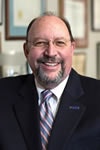
Identify two strengths and vulnerabilities of our Academy and explain how you would propose to leverage those strengths and overcome those vulnerabilities to ensure future stability and success of the organization.
As your next Academy president, I would vigorously protect what I view as our AAO-HNS/Foundation’s greatest strength: its power of unification. Inside the Academy’s “house” we are all otolaryngologists first, and despite our diversity, we live under the same roof with common goals and issues. The Academy has the resources to make a difference by speaking for otorhinolaryngology-head and neck surgery to government and the public on socioeconomic issues and policies that affect us all. The rapidly changing healthcare landscape necessitates that our Academy continue collaborating with other medical organizations, defining quality healthcare in unison, and projecting our voice as one.
Our Academy’s annual meeting, the world’s largest otolaryngology educational venue, represents a second strength I would fortify. Let us bring together private practitioners, academicians, specialists, generalists, scientists, clinicians, Americans, and international guests to create a powerful and effective learning environment. I want to utilize technology so that all of us will efficiently acquire and share this knowledge which is most pertinent to our professional daily lives and practices. This can only enhance patient care and the high esteem for otolaryngology.
Vulnerabilities become reality if the future eludes our current conscience. We cannot afford to lead from behind or react instead of being proactive. If elected, I would engage our subspecialty to find commonalities. Such communication would yield many rewards, including allowing our Academy to provide the best possible representation in meeting the challenges of the Affordable Care Act. I also aim to lead in obtaining tort reform, allocating care to the newly insured, providing stratified care for our aging population, and developing cost-effective approaches. To do less is to leave us vulnerable to the politics of those outside of our profession.
In the context of the Academy’s Strategic Plan, what changes do you envision will be necessary in our Academy during the next three to five years in order to meet the educational, research, advocacy, and fiscal challenges presented by evolving healthcare policy and legislation?
I hope to engage our grassroots as never before, energizing and involving patients, our biggest advocates, in ensuring a future of quality care so that the best and brightest physicians continue our heritage. All of the aforementioned must be considered if we are to fulfill our destiny.
Educational advancement involves innovation in the way physicians learn through new materials that respond to the individual physician’s needs using the most advanced technologies as well as collaboration with other societies. Learning takes place yearlong, not simply once a year.
The Academy should nurture and enrich the CORE process by working with subspecialty societies to support research on all levels. I would also advocate for continued strong governmental NIH support, particularly of the NIDCD. I personally feel that a focus on patient safety (simulation training, for example) is an area in which otolaryngology takes a leadership role.
I am confident that my background of working with our subspecialty societies, innovating in teaching approaches, profitably managing the finances of a large academic department, overcoming traditional town-gown barriers, fostering collegiality, and enhancing the careers of those who have come within my purview, have given me the tools to lead our Academy during these challenging times. I am honored to be considered for this role and will work tirelessly to make a difference.
Candidates for President-elect (vote for one)
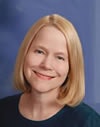
Identify two strengths and vulnerabilities of our Academy and explain how you would propose to leverage those strengths and overcome those vulnerabilities to ensure future stability and success of the organization.
The greatest strength of the American Academy of Otolaryngology—Head and Neck Surgery is its pre-eminence in otolaryngology education, with the world’s best otolaryngology meeting, and its diverse continuing medical education offerings. Another important strength is that its membership includes a high percentage of the practicing otolaryngologists in this country. This confers authenticity when the organization speaks for the specialty.
Our educational programs are challenged by exponential increases in knowledge and the ability for anyone to have access to information from any point in the world through a wide variety of media. Increasingly, our patients may learn of some important advance before we, as physicians, have had time to read about it in our journals. We are bombarded with information from email alerts from various sources and can easily find quick answers to many questions through search engines. As other sources of information become timelier and more accessible to our members, our products then become less valuable. And although we continue to have the best otolaryngology meeting in the world, we may have fewer attendees as financial pressures reduce the time available for educational activity.
Many medical organizations are losing members as physicians face greater fiscal challenges and dues increase. Currently, most practicing otolaryngologists do choose to maintain membership in our Academy. But we must never take this for granted. The rapid changes in our healthcare system are confusing and threatening. Our Academy is poised to offer vital assistance to physicians during these uncertain times. We must be effective in collective action, such as determining the quality measures that will be used to assess our practice.
In the context of the Academy’s Strategic Plan, what changes do you envision will be necessary in our Academy during the next three to five years in order to meet the educational, research, advocacy, and fiscal challenges presented by evolving healthcare policy and legislation?
The future of the American Academy of Otolaryngology—Head and Neck Surgery is critically dependent on maintaining relevance to its members. To do so, we must adapt to the changing demographics of its membership and the explosion in the technology of information transfer.
We must become more accessible and rapidly responsive to our members. Questionnaires are not very effective in identifying issues. Additionally, most members are not aware of the helpful resources currently available on our website, despite notifications via newsletters and email. The website should be more interactive and personalized. Members could pose questions and express concerns more spontaneously and get information “just in time.” Social media should be explored as a means to drive traffic to the website and highlight available resources.
A thorough evaluation of our teaching and learning methods is warranted to ensure that our educational products are compatible with changing modes of communication. A broader issue is the extent to which our educational products incorporate accepted principles of adult education. Licensing boards and hospital credential committees will increasingly require specific CME or even Maintenance of Certification, and so it will be important to assure that we offer content relevant to those requirements.
Finally, the output of our committees and task forces is vital to achieving the goals of our Academy. Increasingly, we will need to rely on teleconferencing to deal with time-sensitive issues in a cost-effective manner.
Candidates for Director At-Large (Academic) (vote for one)
In your view, what are the three most important elements of the Academy’s current Strategic Plan and how would you propose advancing them?
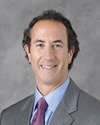
It would be an immense honor to be your next Director at Large and to serve you and the AAO-HNS. As your Director at Large, I would focus on advocacy, unity, and quality. I will be vigilant in efforts to grow our practices, enhance research and quality, strengthen advocacy efforts, and ensure a united voice to best serve our members. These activities are necessary to advance issues germane to our patients and practices. I have participated in diverse roles in the Academy for more than 20 years; the AAO-HNS is part of my core and identity. As past chair of the BOG, I worked tirelessly to:
- Aggressively advocate for what is right for our patients and practices.
- Ensure fair reimbursement.
- See that our practices are not chiseled away by our allied health colleagues.
- Lobby ferociously for fair practices in medical liability.
- Build bridges and forge healthy relationships among our subspecialists.
As a Director at Large, I will continue these efforts. The wonderful opportunities afforded to me by working nationally for our profession are energizing. There is no better way to “give back” to the profession I love than by engaging in activities that strengthen our mission and advance our strategic vision.
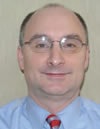
The key element of the AAO-HNS strategic plan is development of evidence that guides our medical and surgical decision-making. Disease-specific outcome measures, with data collected from literature and input of membership, provide support for our diagnostic and therapeutic endeavors, many of which are pressured by third parties. The AAO-HNS can provide resources to develop practice guidelines and measure our outcomes in major medical centers and at the grassroots. Next, the AAO-HNS provides a multifaceted approach to educate physicians and patients—through a vibrant national meeting, the Academy Bulletin and journal, and a host of timely educational products. Third, the AAO-HNS advocates for otolaryngologists and perhaps more importantly for our patients in this evolving medical climate. Advocacy is easy when we have clear evidence of improved patient outcomes and quality of life. Members can propose topics for practice guidelines, and should provide comment and review during the development of such documents. Of course, members should continue to explore educational opportunities at home and at meetings. Simply said, the AAO-HNS should continue to support research that defines quality and optimizes patient care, spread this word through traditional and 21st century educational approaches, and represent the interests of members and our patients.
The AAO-HNS Business Meeting is preliminarily scheduled on September 28, from 11:00 am–11:30 am and will be at the Vancouver Convention Centre, Room 1. It is open to all members. Please join us.
Candidates for Director At-Large (Private Practice) (vote for one)
In your view, what are the three most important elements of the Academy’s current Strategic Plan and how would you propose advancing them?
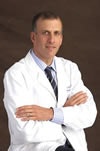
The three most important elements of the Academy’s Strategic Plan are advocacy, research and quality, and education and knowledge. I would be committed to educating patients and legislators/policy makers about the complexities and associated skill sets required for each of us to provide quality care for our patients with diseases of the head and neck, among the most common afflictions in our country. This two-tiered educational process will lead to greater support and awareness from our patients and policy makers facilitating fair policies and reimbursement from both governmental and private payers. The latter two elements, research and quality, and education and knowledge, go hand-in-hand. As a basic and clinical scientist in our field, I believe that we, as a specialty, can and do distinguish ourselves in our research efforts. I would continue to advocate for the AAO-HNS/F, its affiliates, and the NIH to support clinical outcomes research and basic science advancements, which ultimately lead to the highest level of patient care and innovative medicine. Lastly, with the rapid advances occurring in our field, I will advocate for enhanced, standardized, and up-to-date educational activities for our practicing members and our residents, fellows, and medical students in training.
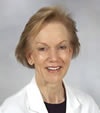
The strategic plan is a dynamic document, revised annually by our elected leaders to ensure the Academy’s focus, work plan, and efforts are timely and relevant. Three important elements of this plan are education and knowledge, research and quality, and unity. These elements inform much of what is important to members and contribute to the toolbox the Academy aims to provide to members so they can effectively deal with changes currently happening in the way we practice and are reimbursed for the quality patient care for which we are committed.
Other critical aspects of the strategic plan are providing the resources to support every member’s ability to meet the requirements of certification and licensure, and to continue to develop evidence-based patient care guidelines. Education is the thread that connects every part of the strategic plan and to that end making members aware of all the Academy has to offer on the educational front is an important goal. Whether for maintenance of certification, continuing education credit, resources for training residents or much, much more, the Academy will continue to invest significant resources and enlist member volunteers to provide top-notch educational materials on a variety of platforms that serve our members’ varied learning styles.
All eligible voting members of the Academy for whom we have an active email address, will receive a personal email in advance of the ballot’s “go live” date. This email will contain your confidential password to access the electronic ballot. For those eligible members for whom we do not have an email address on record, you will receive a letter in the mail with your personal confidential password. Members who wish to receive a paper ballot must submit a request in writing to executiveservices@entnet.org or call the Academy at 1-703-836-4444 and request to speak to someone in Executive Operations. The AAO-HNS election ballot goes “live” on July 8, 2013 and closes on August 22, 2013.
Candidates for Audit Committee (vote for one)
What is your particular experience or interest that would make you an effective member of the Audit Committee of the Academy?
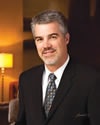
My motivation for this role is simple: ensuring the ethical and efficient use of our valuable Academy members’ dues and other contributions. Our Academy provides exceptional value for its members, but these services come at a significant price. Our members should expect that their dues and donations are spent with maximal effectiveness.
I have benefited from many responsibilities that have yielded financial experience. Most recently I have been appointed medical director for a 200,000 square-foot multispecialty clinic with an annual budget of more than $25 million. I am well versed in poring over detailed financial reports in order to make sure that every dollar is being spent effectively and in accordance with established policies.
I have had the honor of working with many altruistic and ethical leaders. Nonetheless, there was a common saying in my residency: “Don’t trust your mother.” Independent financial oversight is crucial to ensure that disbursements are consistent with the high ethical standards that our Academy members deserve. Based on my motivations and experiences, I am confident that I am well qualified for this role.
I appreciate the honor of this nomination and, if elected, pledge to the members my best efforts in carrying out this responsibility.
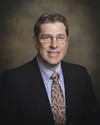
I would be honored to serve on the AAO-HNS Audit Committee. I received an MBA with emphasis in Finance from UCLA. I’ve held several positions to prepare for financial leadership responsibilities, including as treasurer of the county medical society for four years and past president. Also, I have previously served on the AAO-HNS Audit and RVU committees. In addition, I have held numerous positions with the American Society of Pediatric Otolaryngology (ASPO): Finance Committee, COIN Representative, Audit Committee (Chair), Local Arrangements Committee, CME Committee (Chair), Secretary and Past President. Currently, I serve on the Grant Review Committee of the Juvenile Diabetes Research Foundation (JDRF). This is a national non-profit organization in which I assist in awarding $50 million in grants every year for research. The Governor appointed me to serve on the State of Tennessee Board of Communication Disorders and Sciences Committee (2008-2010). I am currently Chairman, Department of Otolaryngology, U.T. Health Science Center and former Associate Dean, Graduate Medical Education, U.T. Health Science Center (1997-2000) responsible for a budget of $60 million and supervised 900 residents campus-wide. If elected, I will work closely with the committee to be responsive to the members and help safeguard the Academy.
Candidates for Nominating Committee (Academic) (vote for two)
What do you see as the priorities of the Nominating Committee in selecting the future leaders of our Academy?
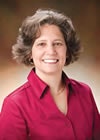
AAO-HNS members will face many challenges in the years ahead, but we have the benefit of a community with wisdom, talent, and enthusiasm. Throughout the years, I have had the privilege of working alongside a wide variety of dedicated, skilled members of the AAO-HNS community, as we have continually improved the quality of our patient care, our educational practices, and our research. The Nominating Committee is responsible for looking within our community to identify candidates who are the “best of the best;” those who are visionary, passionate, collaborative, and committed to representing the varied interests of Academy members.
I have served on a variety of AAO-HNS committees and I’ve served in leadership roles in several national and international professional societies; these experiences have helped me understand leadership qualities. Our leaders will need to understand how to make the best use of rapidly evolving technologies, and the socioeconomic context in which we function, in order to enable otolaryngologists to provide the best care for our patients. I would be honored to have the opportunity to dedicate my longstanding interest and experience toward the evaluation, recommendation, and nomination of the future leaders of the AAO-HNS.
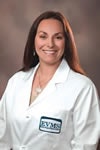
The Nominating Committee’s priority is to select visionary, forward-thinking, and engaging leadership candidates that comprise a slate of officers that accurately reflects the diversity of the entire organization while maintaining balance among subspecialties, practice types, age, and gender.
Maintaining balance is essential to success, and as a former program director and former president of the SUO-Otolaryngology Program Directors Organization, I understand how critical this is. The success of the program is represented by the success of its graduates and the fundamental knowledge that graduates employ represents the strength of the program, the balance of exposure among the different subspecialties, and the acquisition of the nuanced tools of the business of medicine while thriving in academia.
This same balance needs to be maintained when selecting qualified leadership candidates for such a large and varied organization. Having been involved in leadership roles in single subspecialty and multispecialty organizations, I feel these experiences and insights have given me a balance that will serve our organization well in harnessing our diverse strengths and ensuring our leadership accurately reflects our membership. Serving on the Nominating Committee would be an honor and a privilege, one I hope the membership finds me worthy of.
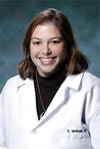
Like many of you, the Academy has always served as my professional home. I appreciate the efforts put forth to improve practice (and reimbursement), to broaden research, and to focus us on quality. The ultimate job of the Academy leadership is to assure that we can provide patients with safe, evidence-based care. Toward that end, I think the Nominating Committee must select leaders who are focused on the education of our members while understanding the social and economic issues that we are facing as academic and private practitioners alike. We need leaders who have committed their time to furthering these goals as educational presenters, as researchers, as legislative advocates, or as Academy committee members. An ideal candidate must also have the vision to continue to position the Academy at the forefront of the quality and patient outcome efforts while being aware of the need for the diverse perspectives that are necessary to represent our broad constituency.
In summary, I believe we must select physician volunteers who have a commitment to service, an understanding of the issues affecting medicine, and the integrity and passion to carry out this important work.
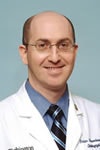
The role of the AAO-HNS Nominating Committee is “to provide the voting membership of the AAO-HNS with a slate of candidates that have been determined to be the ‘best of the best’ to carry on the leadership of the Academy.” I see this responsibility as critically important, especially in these rapidly changing times for medicine. I believe that successful leadership of our organization is not about individual leaders, but rather the leadership team that represents the collective interests and concerns of all otolaryngologist-head and neck surgeons from diverse backgrounds. The strength of the leadership team is based on the collective intelligence and fortitude of its members, and the commitment to the organization’s core values. The ideal Academy members who compose the leadership team will include those who come from diverse backgrounds, have demonstrated dedication to our specialty, and have a clear vision for the continued success of otolaryngology. These individuals are humble, thoughtful, flexible, trustworthy, confident, altruistic, and inspiring. If elected, I will ensure that the Academy membership is provided with a slate of candidates that would all be outstanding leaders to build the team with and represent otolaryngology-head and neck surgery with honor and integrity.
Candidates for Nominating Committee (Private Practice) (vote for two)
What do you see as the priorities of the Nominating Committee in selecting the future leaders of our Academy?

Though otolaryngologists represent a relatively small proportion of physicians in this country, our membership is extremely diverse. This variability in our membership demands the combination of experience, adaptability, and vision in our leadership corps.
Future leaders of our Academy must have diverse and practical experiences, which provide a basis for future direction. Experience in clinical practice (academic or private), fosters an understanding of the challenges we confront on a daily basis. Experience in local, regional, and national organizations provides the foundation crucial for our leadership.
Adaptability is an important characteristic for those at the helm of our Academy. The practicing otolaryngologist in 2013 is confronted with a plethora of regulatory, compliance, and technological changes—current and future. This evolving nature requires our Academy, and its leadership, to progress forward with the continuously changing playing field.
In the context of the changing healthcare landscape, it is imperative that leaders of our Academy provide an astute vision by which to navigate our specialty. Building upon experience and adaptability, clarity of vision will provide the best opportunities for our membership and our patients as we forge through this rapidly evolving era in medicine.
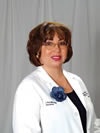
“Without vision the people perish.” The honor of being nominated is not taken lightly. The members of the Nominating Committee have the responsibility of selecting the physicians who will form the future and the vision of our Academy.
One of the priorities of this committee is to select candidates with insight to prepare us for the evolution of the practice of medicine. These changes are on all fronts. Physicians face challenges in all modes of practice. Our specialty is rapidly advancing in innovations in patient care. We will also conform to the changes required by the Affordable Care Act.
We are an Academy of heterogeneous members from general otolaryngologist to subspecialist, members still in training to seasoned professionals. An ever increasingly diverse group, we join together in one voice. Another imperative/priority of this committee is to select candidates that reflect our members.
I enjoy the opportunity to serve the Academy by being a member of the Board of Governors and Chair of the Diversity Committee, which allows me access to the Board of Directors. Through this involvement I continue to make the acquaintance of our dedicated leaders. I will seek comparable candidates to serve. Thank you for your support.

Nominating Committee members must be active in efforts to identify and encourage those individuals with the ability, dedication, and responsiveness to become effective and inspiring leaders of our Academy. We should be following emerging leaders at all levels within our organization to encourage leadership development from the bottom up. We must include both the younger generations who will eventually be most affected by our decisions, and the older generations who are willing to share the wisdom gained from experience. We should strive to achieve diversity within our leadership, not only of race, gender, and age, but also of practice setting, subspecialty, and practice type. More importantly, as practice patterns and physician demographics change, we should be nominating leaders who are not partial to one particular mindset or group, but who will keep open minds and be responsive to the needs of all of our members. We should seek effective communicators who have demonstrated the capacity to work toward consensus within a group while still keeping all points of view and all stakeholders in mind. We should seek those who demonstrate the enthusiasm, flexibility, and vision to do what is best for our Academy, our specialty, and our patients.
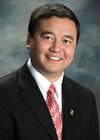
The current complex climate of medicine highlights the critical role of the Nominating Committee. We face challenges, previously foreign to many of us—increasing regulation of our practice habits, scrutiny of any and all of our interventions and decisions, and total accountability for patient quality outcomes reporting. The committee must select AAO-HNS members who are well versed in medicine, as well as adept with socioeconomic issues, legislative activities, and insurance mandates. Enthusiasm, fairness, and skillful representation of our membership are essential; staying abreast of the ever-changing target of effective healthcare delivery systems is a must.
Experiencing the escalating economic and practical challenges facing practitioners during the past 20 years as an attending otolaryngologist, and understanding how to coordinate and prioritize physicians’ goals as Section Chief of Otolaryngology at Yale-New Haven Hospital Saint Raphael campus, as President of the CT ENT Society and President of New England Otolaryngological Society, and serving on the BOG Nominating Committee, I have confidence in identifying exceptional candidates. Excellent communication skills, a firm grasp of our current issues and future directions, and engagement of members—from new graduates to established practitioners—will be my top priorities in selecting our future leaders.

